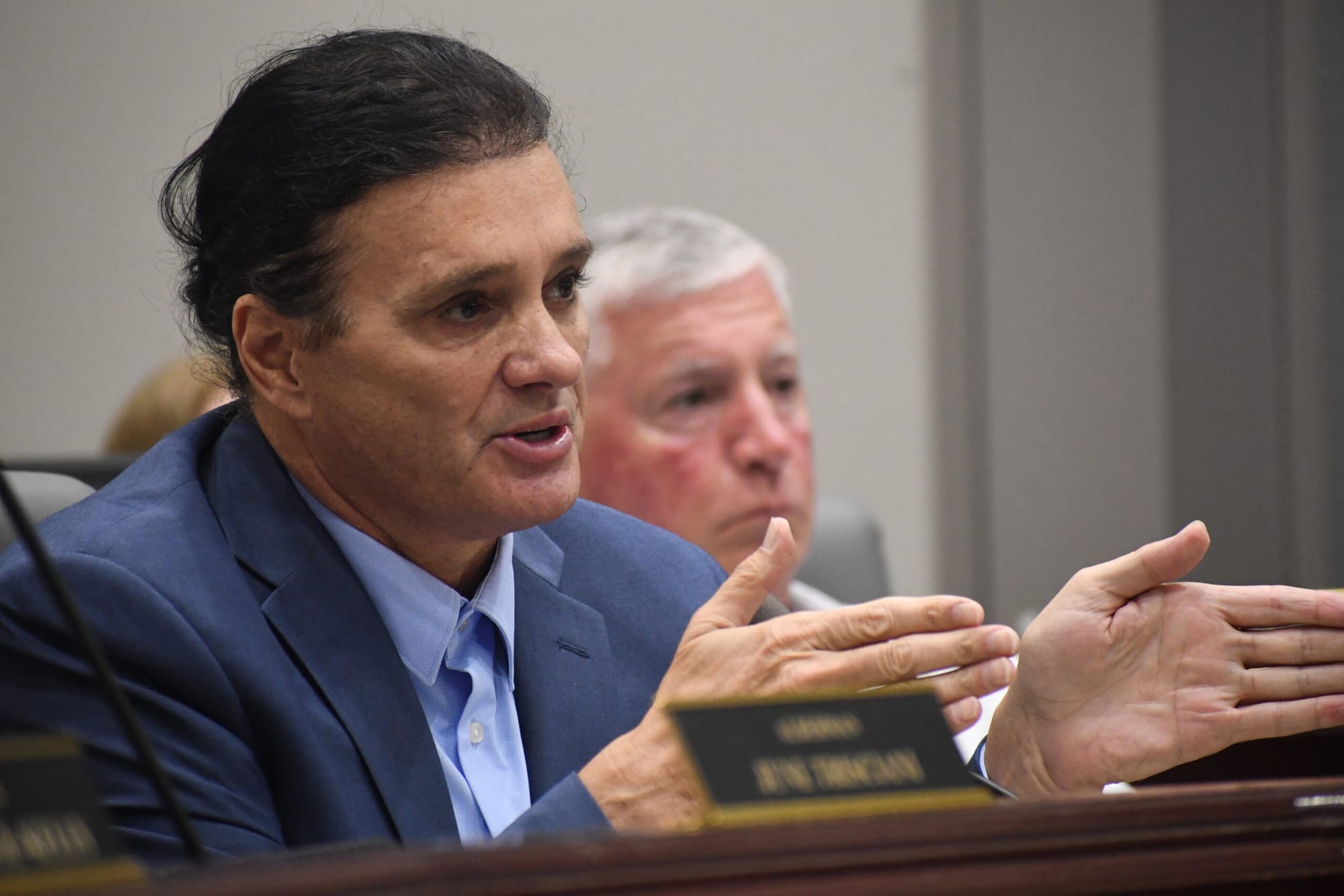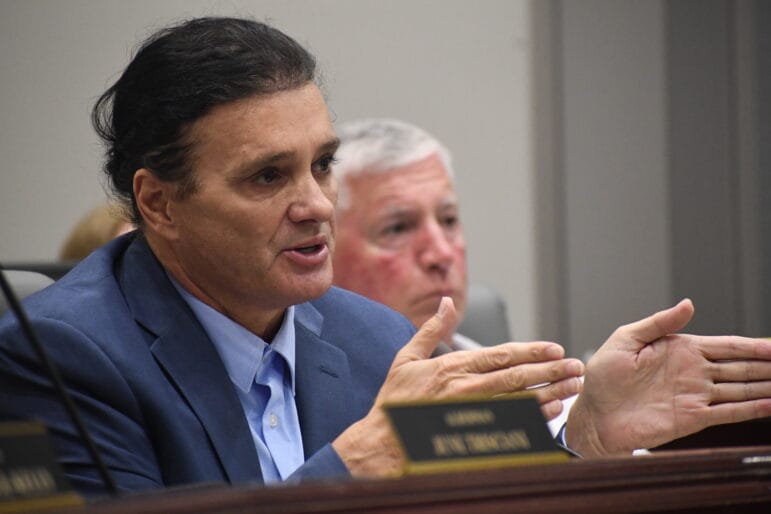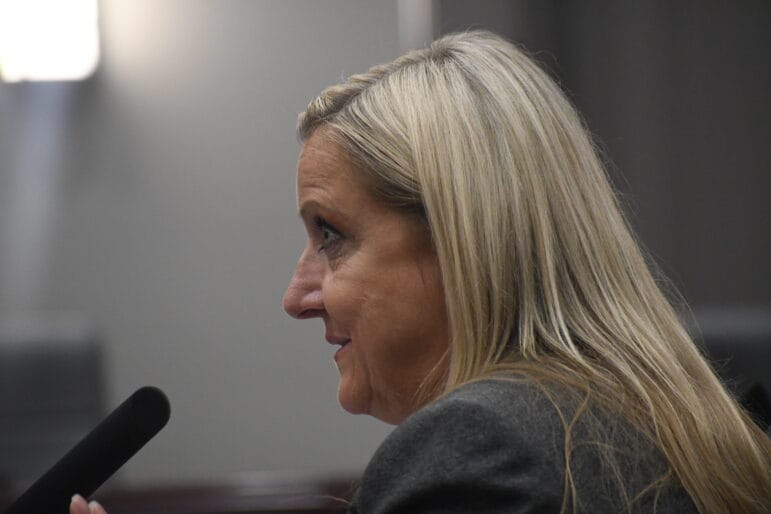Aldermen pleased with Gatehouse progress update
Weeks after a contentious discussion about a contract between the City of Manchester and Gatehouse, it appears all is now well in the agreement designed to help address alcohol and opioid abuse among the city’s homeless population.


MANCHESTER, N.H. – Weeks after a contentious discussion about a contract between the City of Manchester and Gatehouse, it appears all is now well in the agreement designed to help address alcohol and opioid abuse among the city’s homeless population.
In an update to the Manchester Board of Mayor and Aldermen’s (BMA) Special Committee on Alcohol, Other Drugs and Youth Services, Manchester Director of Homeless Initiatives Adrienne Beloin and representatives of Gatehouse provided an update on the initiative, which has officially placed 53 people into detox programs as of Monday, 68 days after the establishment of the initiative that was expected to take a year to accomplish.
That figure does include several people who have gone through treatment twice, with Gatehouse’s Amanda Robichaud and others noting that the unofficial figure is actually near 100 given that many of the individuals who received treatment inspired others to get treatment independently of the city’s initiative.
Only two of the people were identified as veterans, bringing Gatehouse’s Donna McHugh to note that it may be an indicator of strong homeless detox programs for veterans in the area. Nine individuals were also identified as not having any insurance, something that Committee Chair and Ward 10 Alderman Bill Barry found to be particularly notable.
“My goal was to get people off the street,” he said. “There were a lot of people that didn’t have a penny to their name and that made them give up hope of giving up treatment.”
Ward 12 Alderman Erin George-Kelly asked about housing transitions following treatment, with Beloin and the Gatehouse representatives indicating that they can provide additional breakdowns on specific housing plans for those entering treatment in future updates, with this update streamlined for the sake of clarity.

Alderman At-Large Joseph Kelly Levasseur asked if the contract would be renewed or extended, given that it was meant to last a year and treat 60 individuals. Beloin stated that there would be an audit of the initiative’s progress on Wednesday with additional information coming at the next full BMA meeting on July 11.
Manchester Mayor Joyce Craig noted that federal funding is available for opioid treatment, and that while not all of those getting treatment through the initiative are recovering from opioid abuse, some are and that money could be allocated to the contract. There is also the possibility of allocating money not used toward two staff member positions that could not be filled toward an extension of the contract.
Ward 3 Alderman and State Representative Pat Long also noted that with the recent passage of SB 110, Manchester could be reimbursed by other municipalities where homeless individuals previously lived but traveled to Manchester for treatment if their municipalities or origin are tracked.

The committee also received an update from Manchester Health Department Anna Thomas and the city’s harm reduction program and other harm reduction efforts by outside groups such as syringe service programs (SSPs).
Thomas built upon Robichaud’s statement that approximately a quarter of the individuals she has helped get into treatment in Manchester either through the initiative or outside of the initiative had criminal records with some still being on probation, something common in harm reduction efforts as well, making the recent news regarding Tirrell House even more significant given homeless women may be victims of sexual abuse.
However, Thomas also stressed that harm reduction is a different, if not equally important to Gatehouse’s approach when it comes to addressing substance abuse in the city, given that it aims at preventing or minimizing substance abuse.
She told the committee that while she often works with other health departments across the state, many in Manchester are unaware of the true nature of the opioid crisis in Manchester since the primary focus is on data from American Medical Rescue, which provides ambulance services for Manchester and Nashua and releases opioid overdose and death data each month. Thomas said that per capita, opioid overdoses are higher in the North Country, and many overdoses go unseen given the fact that AMR only has data regarding overdoses they have direct contact treating.
Thomas also praised Manchester Police Department Lieutenant Matt Barter and Manchester Director of Overdose Prevention Andrew Warner for their work preventing and addressing spikes in opioid overdoses in real time, and also said that the city is one of ten cities across the country engaged in cutting-edge harm reduction initiatives.
Levasseur asked Thomas for a list of those cities, which she said she could provide after the meeting. He also expressed concern with Warner handing out needles to individuals in the city’s downtown area, stating that downtown business owners expressed concerns with people doing drugs on their property without permission. Thomas said that Warner has been advised to be cognizant of those concerns after the matter was addressed by Levasseur earlier this year. She also said that while under city ordinance, SSPs are prohibited from operating in city parks and within 1,000 feet of schools. However, she also noted that under state law the city cannot control the SSPs. While she felt that it might be a last resort, she said that the city itself could become an SSP in order to ensure the process is done discretely and properly, noting the fact that individuals connected to SSPs are five times more likely to get treatment, three times more likely not to do drugs again and are a key bulwark in preventing the spread of opioid overdoses and HIV.




